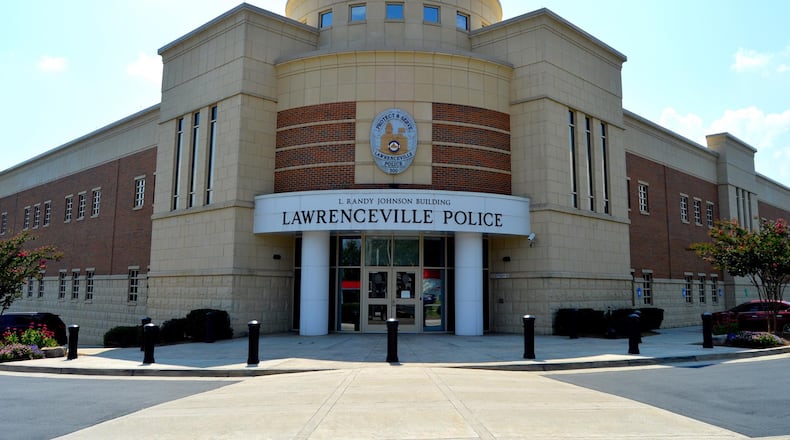Lawrenceville residents and business owners could be fined for accidentally setting off their burglar alarm if a proposed new law is passed.
In response to the high rate of false alarms police officers respond to each year, Lawrenceville Police Department on Wednesday presented an ordinance to Lawrenceville City Council that would levy a fine after setting off multiple false alarms at their home or business. The ordinance also would require anyone owning an alarm system to register it with the Gwinnett County city.
With Council members divided and questioning the proposal, they agreed to discuss the ordinance more at a work session in April.
The police department received an average of 2,700 alarm calls each year from 2015 to 2019, according to police officials. Each year, only about six of those calls warranted a police response, while the rest were false alarms. The overall volume of calls dropped in 2020, but the pattern continued with only six out of a total of 2,300 alarms were for an actual break-in.
“Having been here so long and seeing this progress to where we are now, I know that these alarms get frustrating for the patrol guys,” said Capt. Ryan Morgan during the work session. “We’ll always respond no matter what, but if we can put some things in place to keep us from going unnecessarily, that’s what we’re trying to achieve here.”
Lawrenceville Police Department currently responds to any alarm by sending two officers to the location. False alarms not only waste police resources, but they may also cause officers to respond with less haste to an actual crime at a location known for frequent false alarms, Morgan said.
Morgan gave the city a rough draft of the proposed ordinance, borrowing the language from a neighboring city which uses the same company to process alarm calls as Lawrenceville. The department welcomes the Council to reshape the ordinance in any way it sees fit, Morgan said.
If the Council adopts the ordinance as presented, violators would get a warning with the first false alarm, but face a $50 fine after their second false alarm. The fee gradually increases with each false alarm, with violators paying $300 and police officers no longer responding to an address after the eighth false alarm.
Rather than fully suspending response to alarms, the police department suggested the city could stipulate that after the eighth alarm some type of verification must be provided from the scene. For instance, a person at the scene of an alarm or a video camera could be used to verify a crime is taking place before police officers are dispatched.
“My feelings are everybody gets a freebie, an ‘Uh-oh, I had my hands full and couldn’t get to the alarm code fast enough to punch it in,’” Morgan said. “By the time the third time it comes around, you need to turn it off before you bring the groceries in.”
Councilor Keith Roche objected to much of the ordinance, especially the section requiring alarm system permits. “I have to be honest with you. I’m real uncomfortable with this,” Roche said. “I think we’re squirrel hunting with a cannon.”
Rather than forcing everyone to register their systems, Roche argued that the department should focus on stopping false alarms in repeat locations. Requiring everyone to seek a permit places an unnecessary burden on those correctly operating their alarms, Roche said.
The false alarms come equally from residents and businesses, with it varying from day to day, Morgan said. But businesses represent the majority of repeat offenders, often from its employees not knowing the alarm code, he said.
The police department already uses Central Square, a technology company focused on the public sector, to monitor its alarm calls. If police officers respond to an unregistered alarm following a call from its company, Central Square would later notify its owner that they need a permit, possibly leading to a fine.
This also made Roche “uncomfortable,” as he doesn’t agree with people needing a permit for an alarm system or paying a fee “when all they want is protection,” he said.
As a way to educate alarm system owners, Councilor Victoria Jones recommended the city offer an education incentive after a false alarm. Violators should be offered a class after the first false alarm instead of paying a fee, she said.
Chuck Warbington, city manager of Lawrenceville, said the ordinance should stress the importance of personal responsibility of alarm system owners.
“This is a way, from a fine standpoint, not to be punitive in any way other than to get somebody’s attention that you need to fix it because you’re wasting taxpayers’ resources,” Warbington said.
Other metro Atlanta cities–including Sandy Springs, Dunwoody, Roswell and Johns Creek–have all passed similar alarm ordinances. In 2017, Sandy Springs started fining security companies $500 for reporting false alarms, leading to a lawsuit in which the U.S. Court of Appeals upheld the North Fulton city’s ordinance. Its police officers now require audio, video or in-person verification of a crime before responding to alarms.
About the Author
The Latest
Featured



